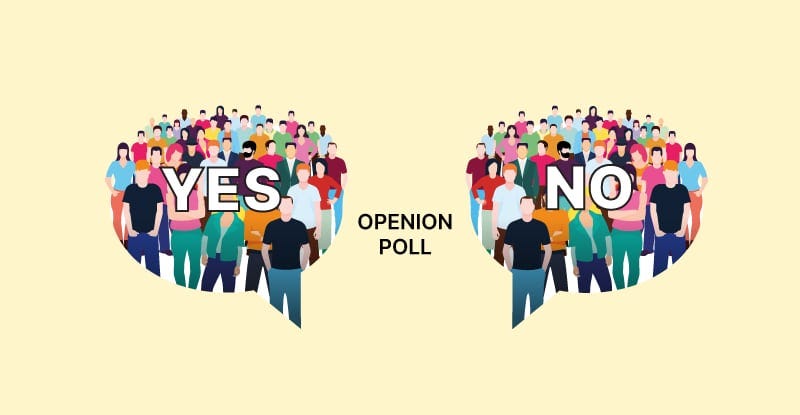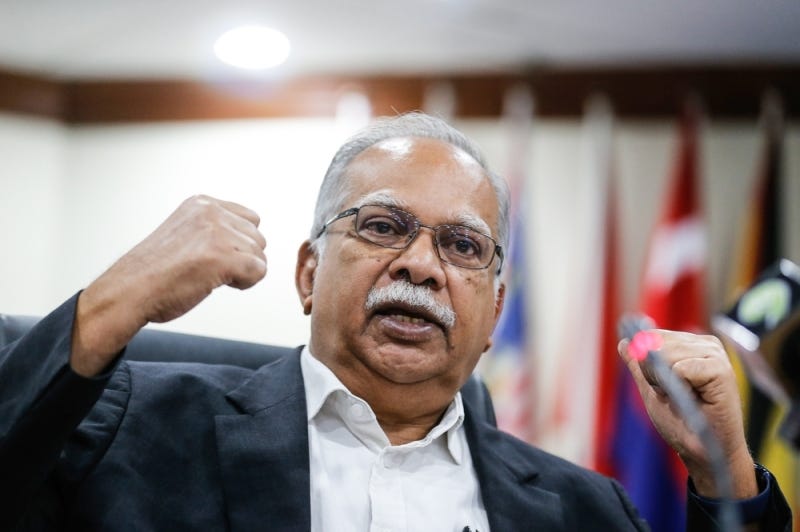
Murray Hunter
The opinion polls paradox
Guest Editorial: The pitfalls of opinion polls: Superficial insights and misleading signals
Dec 28, 2024

Before jumping into the guest editorial today, I want to draw attention to two contrasting articles on Malaysian news portals over the last couple of days.
Portals like FMT and Malaysiakini reported that prime minister Anwar Ibrahim’s approval rating has risen to 54 percent in a recent Merdeka Center opinion survey. The articles go on to say Anwar’s popularity has gone up from 50 percent over the last year, inferring the popularity of Anwar is on the rise. Admittedly, Malaysiakini went on to say that 53 percent of the Merdeka Poll’s 1,207 respondents thought Malaysia was going in the wrong direction.
A couple of days later, Malaysia Now reported that Anwar’s two year old government continues to struggle to find support of the Malays. The Malaysia Now article also said that those dissatisfied with Anwar have risen 2 percent over the last year.
Same poll and vastly different interpretations. Prof P Ramasamy looks into the polls issue in more depth below:
The pitfalls of opinion polls: Superficial insights and misleading signals
P Ramasamy
Opinion polls, often derived from limited samples and telephone interviews, fail to provide definitive insights into the popularity of leaders like Prime Minister Anwar Ibrahim, the government’s performance, or the state of the economy.
While such polls may suggest trends, they are inherently constrained by their methodology and should not be treated as authoritative indicators of public sentiment or national progress.
Even if these polls indicate rising popularity for Anwar or the government, economic realities often paint a starkly different picture.
Announcements of foreign investments, for example, do not guarantee their materialization, highlighting a gap between perception and tangible results.
Economic performance remains a significant concern, overshadowing any slight increases in popularity.
The core issues with these surveys include the following:
1. Small sample sizes: Malaysia’s population of 33 million renders a sample size of just over 1,500 insufficient to draw meaningful conclusions. Extrapolating broader trends from such limited data risks oversimplification.
2. Question design and response biases: The framing of survey questions and how responses are recorded introduce subjectivity, undermining the reliability of the findings.
3. Superficial understanding: Polls provide only a surface-level snapshot of public opinion, neglecting the complexity of underlying issues.
4. False signals to politicians: These surveys can mislead politicians, offering them an inflated sense of popularity or policy success. Such misinterpretations can result in complacency or misguided strategies.
5. Potential for misdirection: When survey results are publicized without clarifying their limitations, they risk shaping public perception based on incomplete or skewed data.
Opinion polls might have value as reference points, but they are no substitute for substantive and critical discussions about national issues.
Policymakers, analysts, and the public must prioritize comprehensive analyses and debates over simplistic metrics of popularity.
Without this, the reliance on flawed surveys may lead to poor governance and misguided priorities.
Opinion polling centers, such as the Merdeka Centre, bear a responsibility to disclose their limitations upfront, ensuring that their findings are interpreted with caution.
Only through rigorous, transparent, and meaningful engagement with issues can a true understanding of the country’s state of affairs be achieved.
P. Ramasamy
Chairman Urimai
December 24, 2024
***
For what it is worth, I have been running my own polls on X. I did ask a similar question, but for this received only a very few respondents.

Prof. Dr. P Ramasamy
For what it is worth, I have been running my own polls on X. I did ask a similar question, but for this received only a very few respondents.

Prof. Dr. P Ramasamy

Malaysian, 75 years of age. Former professor of political economy UKM. Former Senior Research Fellow, ISEAS. Former Visiting Professor, University Kassel, Germany. Deputy Chief Minister Penang, 2008-2023. Former member of parliament, 2008-2013. Three terms Perai state assemblyman. Former Chairman of Penang Hindu Endowments Board. Involved in peace talks in Aceh and Sri Lanka. International peace consultant. Chairman of political party Urimai.
No comments:
Post a Comment